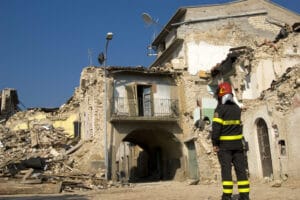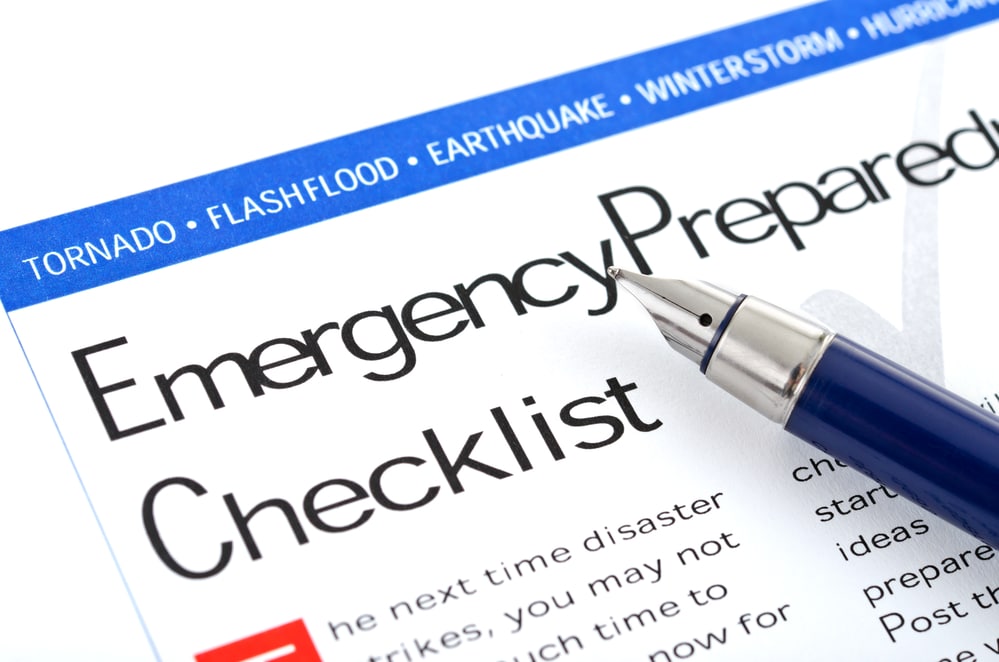
Are you concerned about your earthquake preparedness plan?
If so, you’ve come to the right place!
In this Regional Foundation Repair guide, we answer the most common earthquake preparedness questions, including:
- Why you should always be prepared for an earthquake
- How to prepare your home for an earthquake
- What to do during an active quake (and aftershocks)
And much more!
Earthquakes are an issue that homeowners never want to have to deal with, but unfortunately, it’s becoming much more common. So, let’s walk through how to protect your home and your family from earthquakes in the future!
Would you know what to do if an earthquake was to strike the area where you are now?
Suppose you are in the Los Angeles or San Francisco Bay area, the possibility that a major earthquake measuring magnitude 6.7 will occur within the next 30 years is 60% and 72%, respectively.
Because an earthquake can occur anywhere, it’s important to know what to do when it strikes. Knowing what to do during an earthquake includes being adequately prepared and ensuring that the structure of your house or building can withstand the earthquake. You will also need to know what to do after the earthquake.
Even though many people in the US believe that as long as they are not on the West Coast, they are safe from earthquakes, the reality is that 45 US states and territories are at moderate risk. Therefore, no area is 100 percent safe from being struck by an earthquake.
Is there anything I can do before an earthquake to lessen its impact? Is it possible to retrofit my home and basement to ensure minimal damage during an earthquake? What actions should I take during the earthquake? The earthquake is over; what should I do now? These are the questions we answer in this article.
Helping Americans Learn About What To Do During an Earthquake

To assist Americans in getting the right information about what to do in an earthquake, the Federal Emergency Management Agency (FEMA) had a page entitled, “What to Do During an Earthquake.”
However, an attempt to access the FEMA.gov page today shows that it is no longer online. This seems to be a loss of an important resource that provided Americans with information about earthquake terms and what to do before, during, and after the earthquake.
While we were struggling to find the page with information on what to do during an earthquake on FEMA.gov, we decided to do our own research to determine what we need to do if an earthquake hits the area we live.
What Is an Earthquake?
The Commonwealth of Massachusetts’ website, Mass.gov, describes an earthquake as “the sudden, rapid shaking of the earth, caused by the breaking and shifting of subterranean rock.” The site adds, “Initial mild shaking may strengthen and become extremely strong within seconds.”
In most times, major earthquakes are followed by additional earthquakes called aftershocks. These are described by USGS.com, a science agency for the Department of the Interior, as “smaller earthquakes that occur in the same general area during the days to years following a larger event or “mainshock.”
Why Should We Be Concerned About an Earthquake?
It may be a challenge for someone that lives in a place that an earthquake has never struck to understand what all the fuss about earthquakes is about. However, ask someone who lives in Japan, where earthquakes are a regular occurrence. They will give you a picture of the destruction and loss of human life that can happen during an earthquake.
BBC.com provides an idea of why we should be concerned about earthquakes when it writes, “They can make buildings fall down and set off landslides, as well as having many other deadly effects.”
BBC.co.uk adds that “An earthquake that occurs at the bottom of the sea can push water upwards and create massive waves called tsunamis” that can travel at speeds of up to 500 km/h. This explains why tsunami-struck areas are often razed to the ground, and people caught in the path of these waves die instantly.
Being aware that an earthquake could strike anytime and having the resources to prepare buildings to withstand earthquakes could save lives and property.
The BBC laments that even though scientists can make the building safer and stronger, earthquakes still kill many people. The British public broadcaster proposes that this is because “many quakes happen in parts of the world where people can’t afford to spend lots of money on safety measures.”
